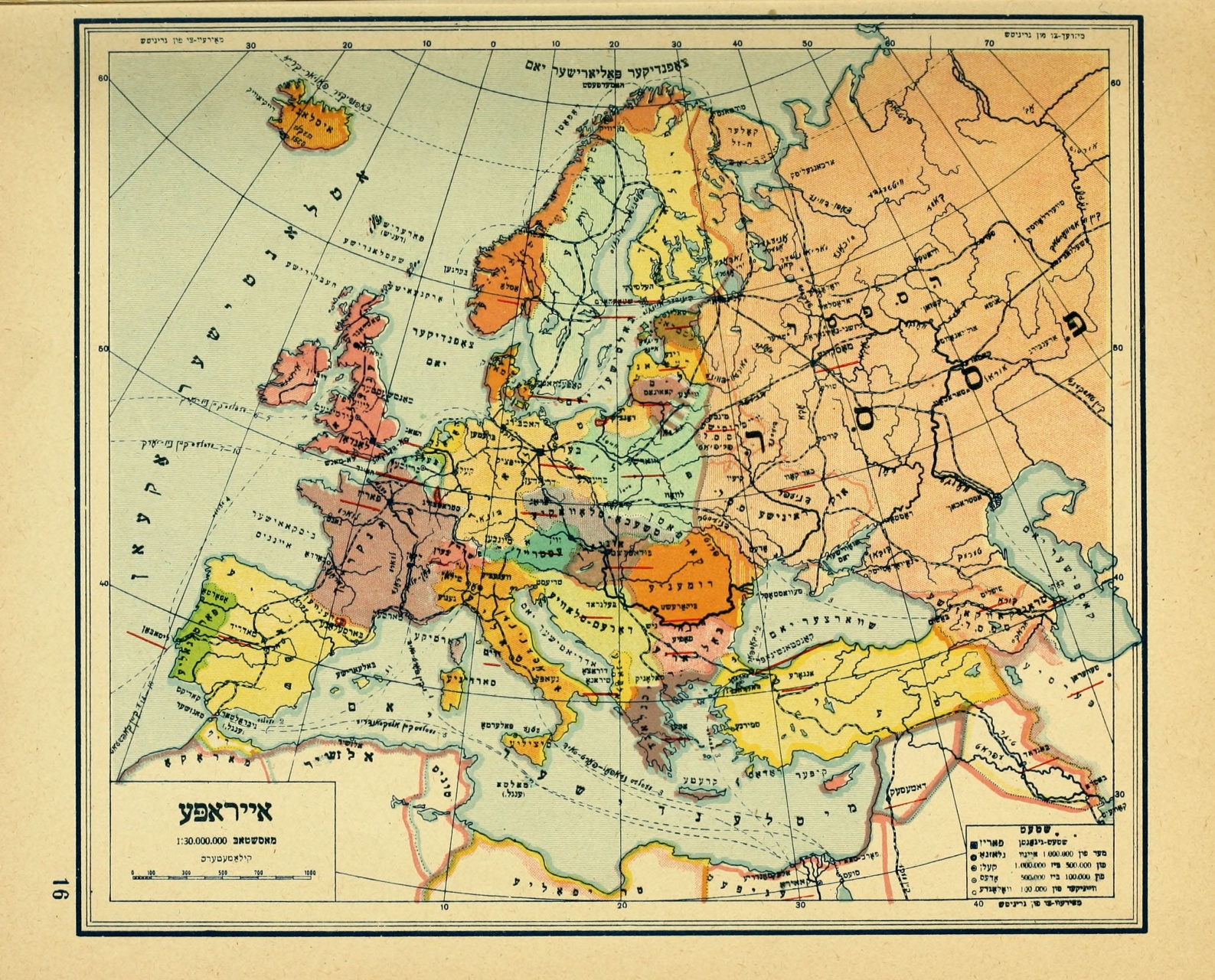Romania and Beyond: Yiddish in Central and Eastern Europe. Challenges to New National States

Event: International Workshop
Location: NEC conference hall & Zoom
13 November 2023, 13.30-18.00 (Bucharest time)
14 November 2023, 10.00-18.30 (Bucharest time)
Convener:
Camelia CRĂCIUN, Associate Professor in Jewish Studies, Faculty of Foreign Languages and Literatures, University of Bucharest; Project Leader, Yiddish Culture in Greater Romania (1918-1940): in the Aftermath of the Empires and Challenged by the New National State (YIDCULT)
Participants:
Camelia CRĂCIUN, Julie DAWSON, Anastasia FELCHER, Anca FILIPOVICI, Gaëlle FISHER, Attila GIDÓ, Szonja Ráhel KOMORÓCZY, Ferenc LACZÓ, Dumitru LISNIC, Irina NASTASĂ-MATEI, Rachel Merrill MOSS, Corina Liliana PETRESCU, Valentin SĂNDULESCU, Francisca SOLOMON
Join Zoom Meeting
https://us02web.zoom.us/j/89667216654?pwd=S1BRektwQjd5NU95ajZJWDVYa2pqdz09
Meeting ID: 896 6721 6654
Passcode: 987526
*
PROGRAM
Monday, 13 November
13.30 Opening remarks
Camelia CRĂCIUN (YIDCULT Project Leader, New Europe College / University of Bucharest)
14.00-15.30 „Jewish Cultural and Linguistic Identities: Between Hungarian and Yiddish”
Chair: Valentin SĂNDULESCU
Attila GIDÓ (Romanian Institute for Research on National Minorities)
Transylvanian Jews between cultures and languages in the 20th century
Szonja Ráhel KOMORÓCZY (Jewish Theological Seminary / University of Jewish Studies, Budapest)
Language assimilation and dissimilation: the case of Yiddish in interwar Transylvania and Maramureș
15.30-16.00 Coffee Break
16.00-18.00 „Yiddish Language, Culture and Education in Interwar Romania”
Valentin SĂNDULESCU (New Europe College / University of Bucharest)
Yiddish Language and Culture in Interwar Romania: Context and Challenges
Irina NASTASĂ-MATEI (New Europe College / University of Bucharest)
The issue of the Yiddish education in Greater Romania
____________
Tuesday, 14 November
10.00-11.30 “Yiddish Cultural and Political Activism in Bukovina”
Chair: Francisca SOLOMON
Anca FILIPOVICI (Fritz Bauer Institut, Frankfurt am Main / Romanian Institute for Research on National Minorities)
Jewish youth and political activism in interwar Bukovina
Julie DAWSON (Institute for Contemporary History, University of Vienna)
Illuminating an “Unknown” Town: Interwar Jewish Life and Yiddish Traces on the Bukovina Periphery
Gaëlle FISHER (Bielefeld University)
On the Creation of a Yiddish-Romanian Canon and Jewish-Romanian Pantheon: Shlomo Bickel’s Romania
11.30-12.00 Coffee Break
12.00-13.00 „Yiddish and Politics in Soviet Context”
Chair: Irina NASTASĂ-MATEI
Dumitru LISNIC („A. Russo” University of Bălți)
The Yiddish speakers of a Soviet borderland. Jewish communities of Pridnestrovie and the formation of Moldavian ASSR in 1924
Anastasia FELCHER (CEU & Blinken OSA Archivum)
Remembering Yiddish that Perished: Soviet Jewish Samizdat and Radio Liberty on the Fate of Murdered Poets” (online)
Ferenc LACZÓ (Maastricht University)
Hungarian Jewish Intellectuals and the Rediscovery of Yiddish in the Age of Persecution
13.30-14.30 Lunch
14.30-16.30 „Yiddish Culture and Theatre in Interwar Romania”
Francisca SOLOMON (New Europe College / University of Iași)
The emergence and the evolution process of the Yiddish cultural field in interwar Romania. Political, cultural, literary and journalistic landmarks
Camelia CRĂCIUN (New Europe College / University of Bucharest)
Yiddish Theatre in interwar Romania: between Tradition and Reform
16.30-17.00 Coffee Break
17.00-18.00 „Stances of Yiddish Theatre in Eastern Europe”
Chair: Camelia CRĂCIUN
Corina Liliana PETRESCU (University of Mississippi)
Yankev Shternberg’s Skotsl kimt – A Close Reading (online)
Rachel Merrill MOSS (Colgate University)
With Humor and Pathos: Early Postwar Yiddish Theatre in Poland (online)
18.00-18.30 Concluding remarks
*
This event is organized within the research project titled Yiddish Culture in Greater Romania (1918-1940): in the Aftermath of the Empires and Challenged by the New National State (YIDCULT), supported by UEFISCDI – Exploratory Research (PN-III-P4-ID-PCE-2020-0317).